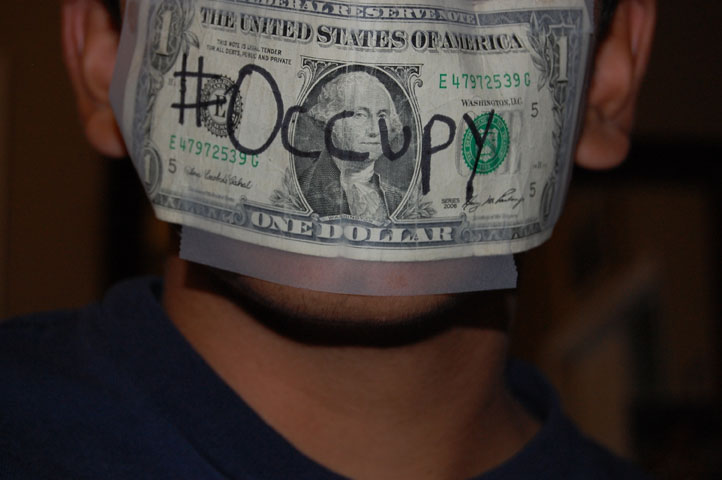On July 13, 2011, the anti-consumerist group Adbusters called for for a group of people to move into Wall Street in order to protest the growing inequality of the American economy and corporate greed. The protest was slated to begin on September 17 and during the first week, approximately 1,000 protestors marched through the streets, with an estimated 100 to 200 staying overnight in Zucotti Park according to Bloomberg News. The protests have since gained far reaching support throughout the United States, reaching over 30 cities, including Orlando, and nearly 15,000 people according to The Guardian.
The people involved in Occupy Wall Street, as the movement has been called, do not have a defined list of demands but instead demonstrate for whatever cause they choose. Some call for the ending of the wars in Afghanistan and Iraq; others call for holding corporations and businessmen accountable for the financial crimes they have committed. Others want an end to the war on drugs, additional jobs, and the reinstatement of the Glass-Steagall Act, which separated banking firms into savings and investment. Even with all of these disparate goals, one thing the protesters can agree on is that the political system no longer works for them and that protesting is the only way to do something about it. Freshman Chris Nacea said, “I think it is good because they are expressing their opinions and showing that they want change.”
Economics teacher Charles Blackwell said, “I think some of their ideas have merit. Some of the people are representative of extreme views, however, some of the people are probably just fed up with the ambivalence of Wall Street financiers towards the rest of the U.S, much like Washington D.C. gets accused of not being in touch with Main Street.”
Due to the protests, many are drawing parallels between the Occupy Wall Street movement and the Tea Party, with some press outlets going so far as to call it the Tea Party of the left. In general, Democratic officials have supported the movement and believe it to be a legitimate way to show the people’s anger with corporate greed and the lack of available employment.
Some Republican officials have criticized the movement as being disorganized and having no particular message, unlike the Tea Party. Some also claim that the protesters are lazy and are secretly backed by unions, rather than being the grass-roots movement they claim to be. Freshman Amanda Billings disagrees with the movement and said, “I don’t think that [it’s] right because rich people pay all the taxes for the poor people.”
It remains to be seen if the Occupy Wall Street movement will become better organized and attain their goals. The example of the Tea Party, though, will remain fresh in some people’s minds as an example of how a few people can bring about enormous political change.



















